UC Irvine physicians and local fabric cutting business team up to produce new type of mask
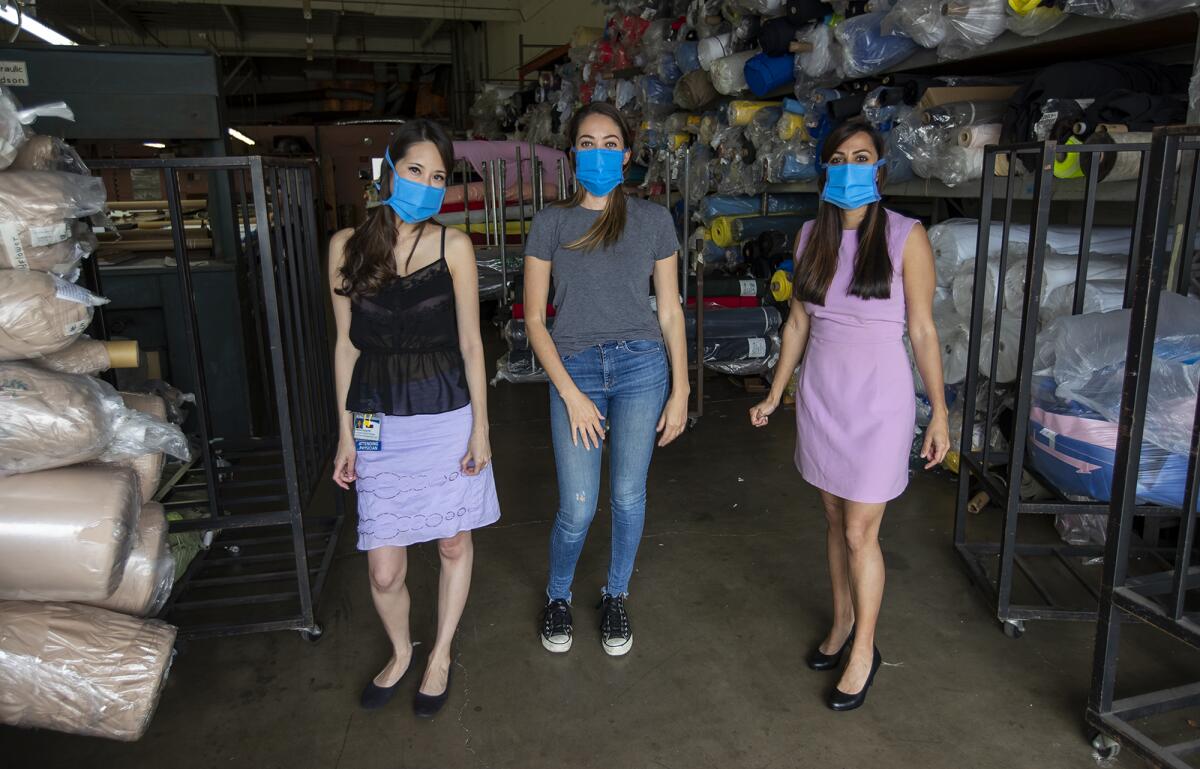
- Share via
UC Irvine physicians and a local fabric cutting business are working together to produce thousands of face masks for hospital workers from a material used to sterilize surgical equipment.
Dr. Aditi Sharma, a resident physician in the UC Irvine Health dermatology department, said the sterilization wraps can be used in masks that filter up to 87% of particles, which is almost as effective as N95 masks, which have a filtration efficiency of 95%.
Sharma believes the masks can be produced in abundance, helping solve the national mask shortage in hospitals. It would also allow for hospital personnel to be well protected, while preserving N95 masks for important procedures.
“I am not suggesting we would use this instead of the N95,” Sharma said. “But I think that this brings out a huge discussion about universal masking. Maybe this is the mask that all the custodial, cafeteria and healthcare workers are wearing, then we save the N95 for truly aerosolized procedures or patients who have tested positive.”
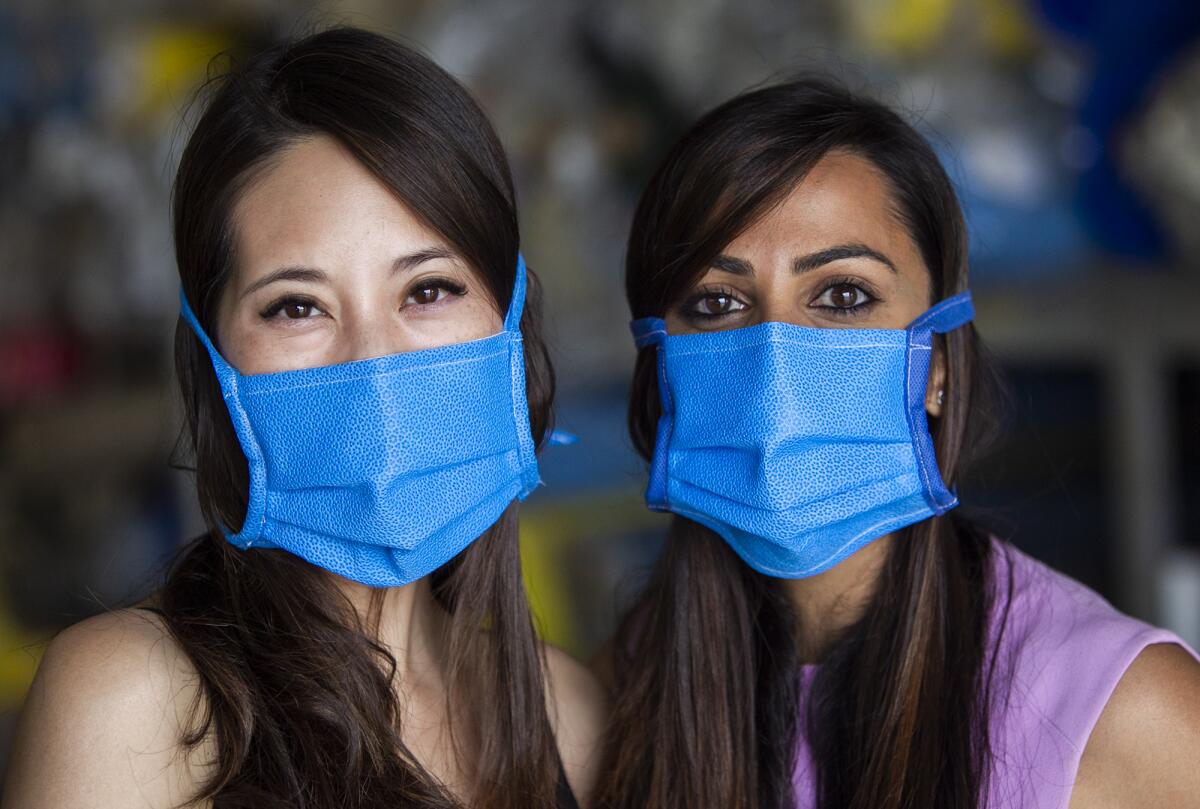
Sharma started working on the masks after she read an article about a month ago by University of Florida researchers that said the surgical wraps could possibly be used for masks. However, there wasn’t enough data to show its efficacy.
Helping solve one of the pivotal obstacles facing the healthcare industry during the pandemic is a natural role for Sharma, who has an undergraduate degree in biomedical engineering. She also worked at the National Institutes of Health, focusing on bioterrorism and biowarfare agents with Dr. Anthony Fauci, who serves as the Trump administration’s foremost medical expert in the COVID-19 pandemic.
Sharma and UCI anesthesiologist Dr. Melissa Chang set out to prove the effectiveness of the material. For this, they partnered with the Massachusetts Institute of Technology.
Greg Rutledge, an MIT chemical engineering expert, tested the masks sent over by the UCI physicians, finding that the material could filter up to 87% of particles when a double layer was used.
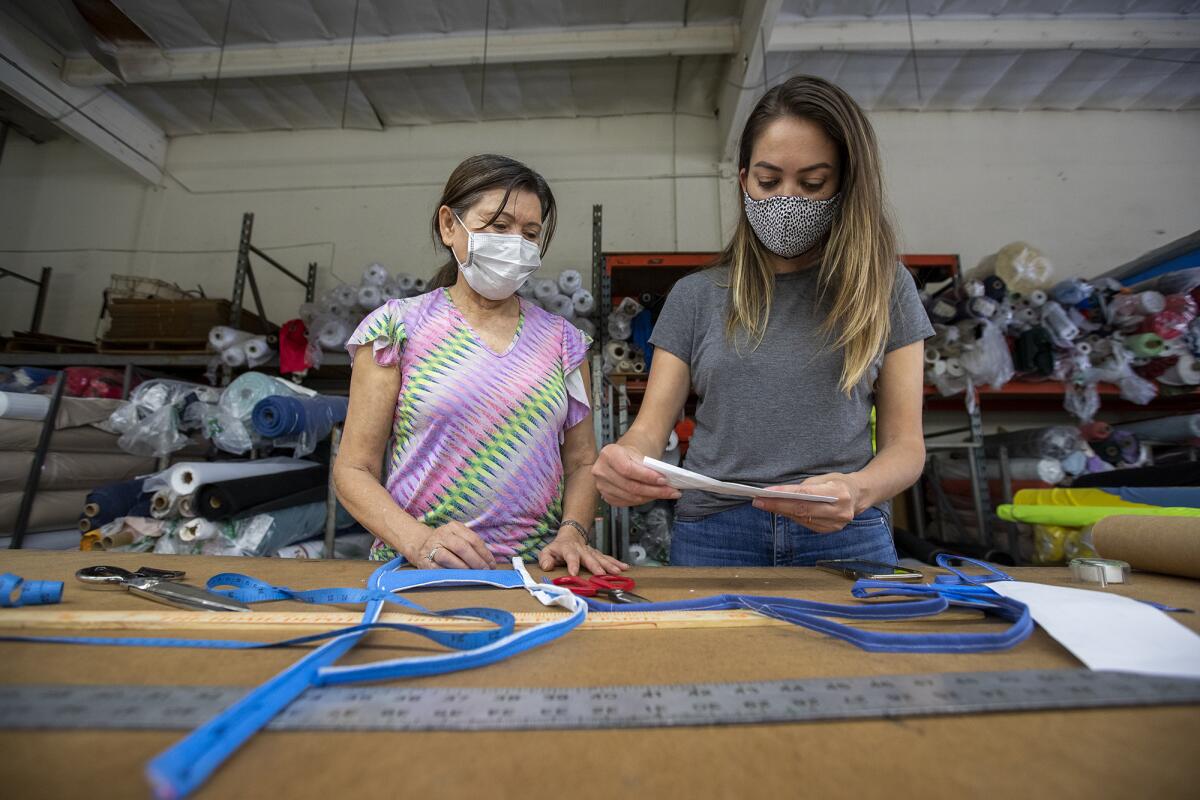
The UCI physicians sent over Halyard H600 sterilization wraps. Hospitals also regularly use Gemini wraps to clean surgical equipment, but a double-layered mask of that material only filtered up to 74% of particles.
“It’s not as great as the N95, but far superior to the cloth masks being handed out that only filter 26%,” Sharma said.
Currently, both types of sterilization wraps are used strictly to sterilize surgical instruments. The equipment is wrapped in the material and run through a sterilization machine. The wraps are then thrown away.
But the physicians believe repurposing the wraps for masks is a way for hospitals to recycle and limit waste. The masks could also potentially be run through the sterilization machine to make them reusable.
“We are saying, why aren’t we reusing this material?” Sharma said. “We could have a self-perpetuating source of N87 masks. Where we could have these masks cleaned by sterilization machine and not have to be throwing stuff away.”
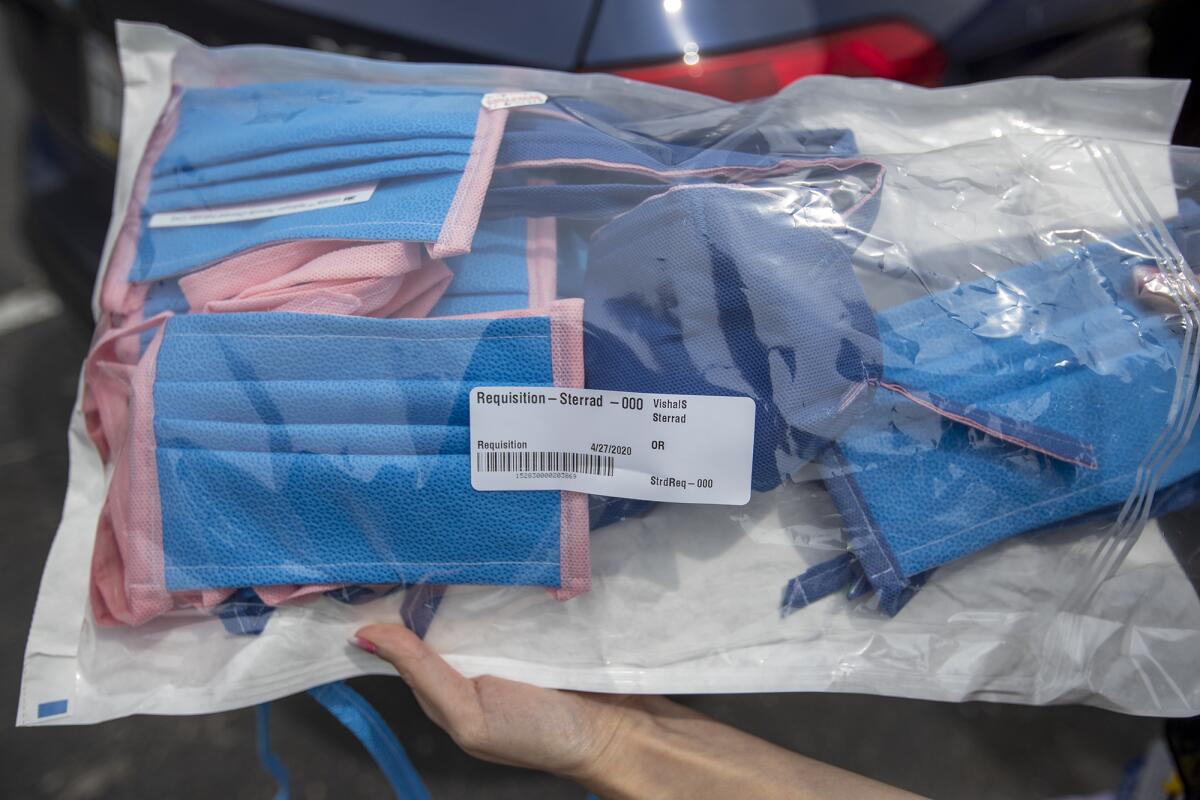
The physicians recently submitted a paper with their findings to a scientific journal. It is currently under review.
To design the mask, the physicians received help from several of the engineering groups on the UCI campus, including the Michelle Khine lab, Elliot Hui lab, and the Ben Dolan lab. UCI medical students have also helped cut wire for the masks.
They designed three mask prototypes, all of which are suitable under the standards of the National Institute for Occupational Safety and Health. NIOSH assesses filtration efficiency and whether masks fit well enough. Healthcare workers regularly get these “fit tests.”
To produce the masks, Sharma is partnering with Jenny Farrell, owner of OC Cutworks.
Farrell is currently making 2,000 masks for Sharma with a small team in her Santa Ana storefront. Farrell’s company will perform the cutting of the material and her mother’s business, which is located nearby, will sew the masks.
Sharma said they will need about 10,000 total.
Farrell, a UCI alumni, has been producing nonmedical grade masks for businesses for weeks. She’d been hoping to help local healthcare workers when Sharma contacted her about a week ago.
“It was perfect timing and a perfect situation,” Farrell said.
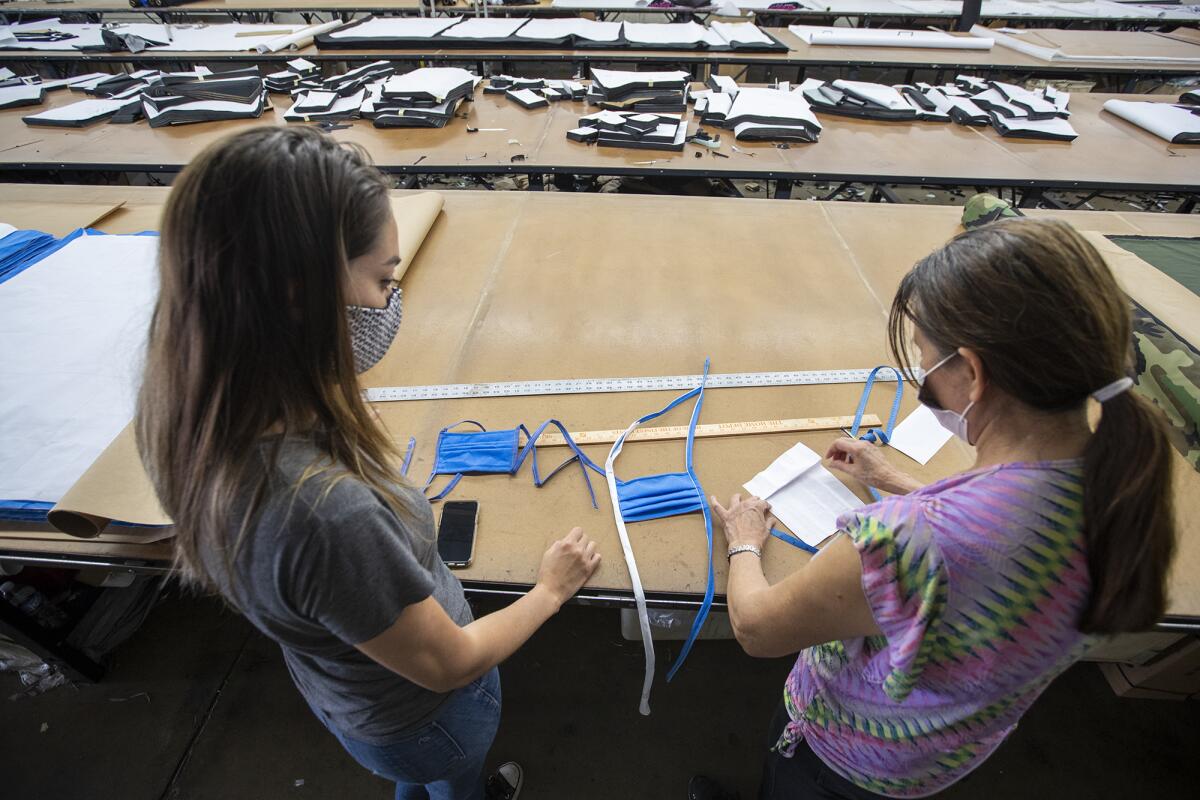
Farrell said her usual clients are no longer ordering from her, so producing the masks is helping her provide an income to her handful of employees. She’s glad to be helping healthcare workers on the front lines of the pandemic.
“Besides keeping my employees working, that was the draw, to be able to help that many people all at once,” Farrell said of her motivations. “Because it seems easy to help people but sometimes you don’t know where to start.”
Farrell said producing these masks isn’t too difficult compared to the nonmedical grade masks. She’s aiming to have the 2,000 masks done by early next week.
Sharma said that while UCI Health isn’t currently short on masks, the hospital needs to be ready in case that time comes in the future.
“We are in the same situation as most of the country, if we don’t start thinking about these reusable, innovative options, we are all going to be in a crunch,” Sharma said. “If we don’t start thinking about other options, we are going to see shortages.”
All the latest on Orange County from Orange County.
Get our free TimesOC newsletter.
You may occasionally receive promotional content from the Daily Pilot.






